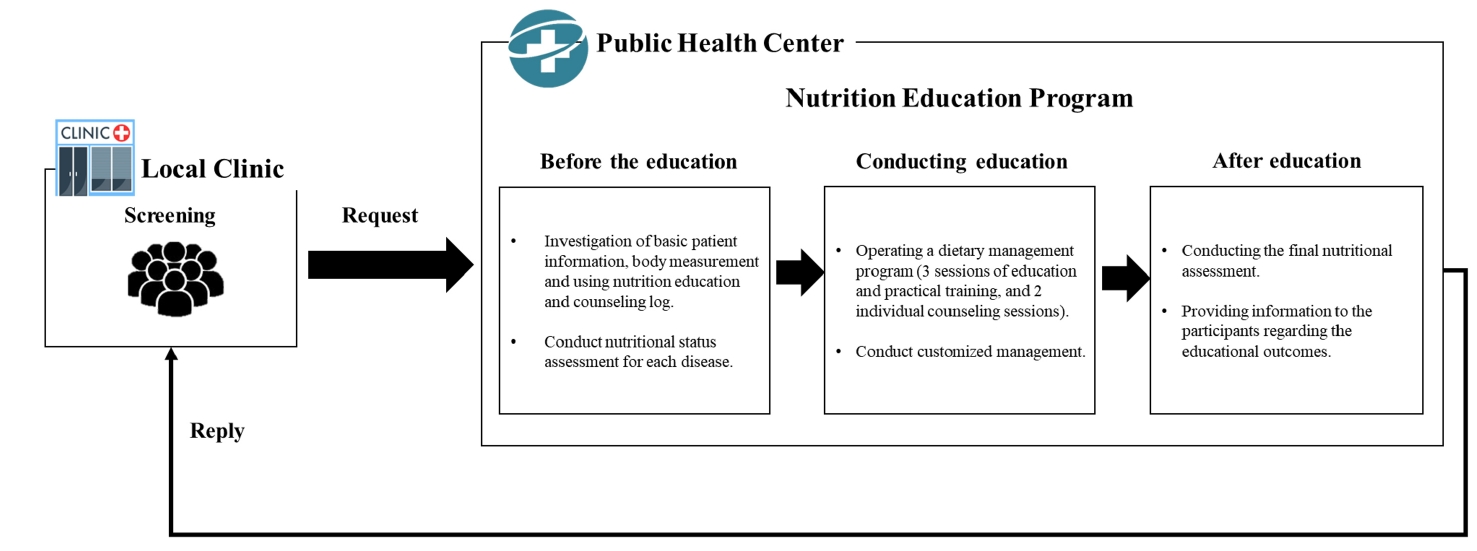- [Korean]
-
Impact of a public health center nutrition education program on patients with type 2 diabetes in a primary care-based chronic disease management project: a pilot intervention study
-
Haerim Yang, Yoo Kyoung Park, Ji-hyun Lee, Hee-Sook Lim, Heejoon Baek, Hyejin Lee, Haeran Park, Pyunghwa Lee, Jooyoun Chung, Won Gyoung Kim
-
Korean J Community Nutr 2024;29(6):492-503. Published online December 31, 2024
-
DOI: https://doi.org/10.5720/kjcn.2024.00018
-
-
 Abstract Abstract
 PDF PDF
- Objectives
We investigated the impact of an advanced “Nutrition Education Program” on patients with Diabetes mellitus, type 2 from public health centers enrolled in a primary health care-based chronic disease management project. This 12-week dietary management program was developed by the Korea Health Promotion and Development Institute. We assessed if this program improved glycemic control and other health indicators through dietary and nutritional improvements.
Methods
Seventeen patients with Diabetes mellitus type 2 were enrolled in the “Nutrition Education Program.” These patients were referred to public health centers for lifestyle management based on physician assessments at local clinics that were participating in a pilot project on primary health care-based chronic disease management. The participants attended the program comprising face-to-face basic, in-depth, and practical training sessions at the health center during the third, fifth, and seventh weeks, respectively. Anthropometric measurements, body composition analysis, blood biochemical characteristics, nutritional knowledge, and self-efficacy evaluation were performed before and after the program. Data were analyzed using SPSS ver. 28.0.
Results
The mean age of the participants was 62 years, and most participants were female (14, 82.4%). No significant changes in patients’ anthropometric measurements or body composition were observed after the training. However, significant reductions were observed in the blood biochemical characteristics, including glycated hemoglobin, total cholesterol, and low-density lipoprotein levels. Additionally, patients’ nutritional knowledge and self-efficacy scores increased significantly.
Conclusions
The “Nutrition Education Program” helped in improving glycemic control and other health indicators in patients with Diabetes mellitus type 2. Further research is required to objectively confirm the long-term and sustained effects of the program in a controlled study.
Trial Registration
Clinical Research Information Service Identifier: KCT0010010
|




